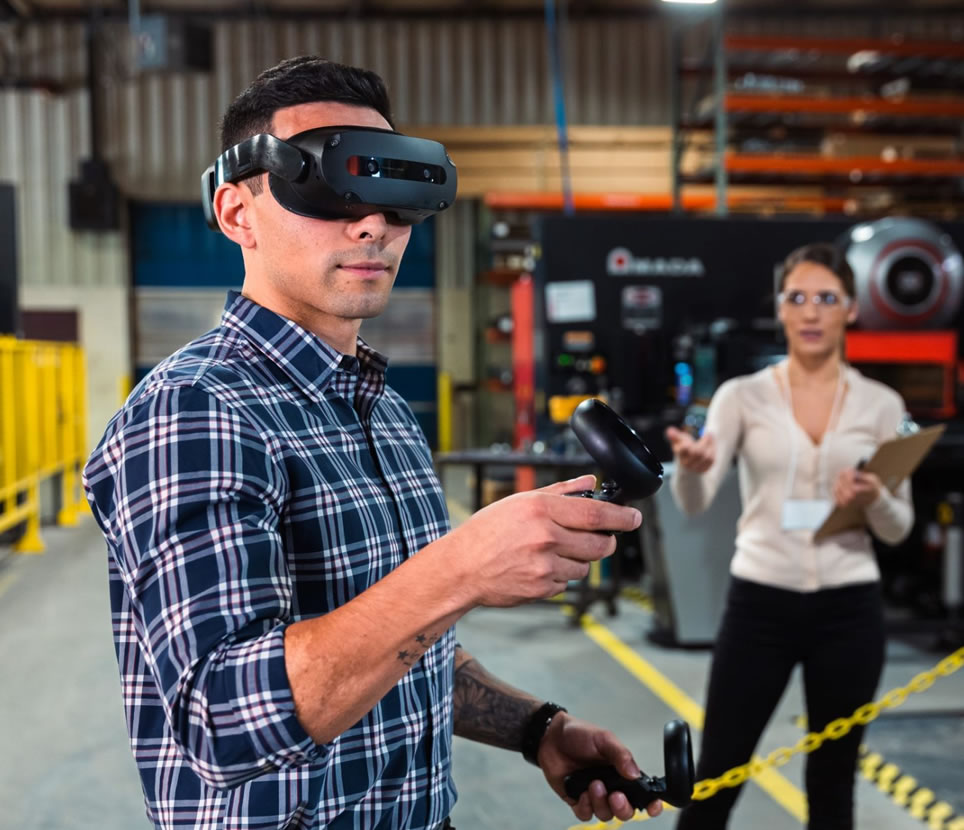Virtual reality (VR) technology is increasingly being utilized in enterprises and corporations to enhance productivity and improve talent retention. Studies have investigated its applications for knowledge workers, stress reduction at work, workplace training, and team collaboration.
-
Enhancement of Productivity and Knowledge Worker Efficiency
- A study explored how VR can support productivity in knowledge workers by creating a VR productivity framework that focuses on physical, environmental, cognitive, and behavioral needs (Aufegger & Elliott-Deflo, 2022).
- Virtual reality was also shown to help foster flow and reduce distractions in open office settings, enhancing productivity for tasks that require deep focus (Ruvimova et al., 2020).
-
Reducing Stress and Improving Well-being at Work
- VR applications have been developed to reduce stress at work by allowing employees to engage in relaxing virtual environments during breaks, which helps in managing stress and improves their focus when they return to tasks (Thoondee & Oikonomou, 2017).
-
Training and Talent Retention
- VR has proven effective for training employees in industrial settings, providing an immersive learning environment that facilitates practical skills and soft skill development, such as teamwork and communication (Holuša et al., 2023).
- Another study highlighted the potential of VR in workplace learning by simulating dangerous scenarios, which enhances the ability of employees to handle real-life situations effectively, thereby increasing job satisfaction and retention (Bharwaney et al., 2022).
-
Knowledge Retention and Skill Training
- VR has been shown to be effective in sustaining knowledge retention during training, as it provides interactive simulations that are more engaging compared to traditional methods, making learning more effective for employees (Hall et al., 1998).
-
Corporate Perception of VR in Talent Development
- Corporate learners have valued immersive VR technology as it increases team involvement, knowledge retention, and provides an enjoyable learning experience, despite challenges with technology accessibility and integration into training programs (Shirley & Lee, 2023).
Conclusion
The use of virtual reality in enterprises shows promising benefits for improving productivity, reducing workplace stress, enhancing employee training, and increasing talent retention. Implementing VR technology can create a more engaging and productive work environment, leading to improved overall performance and satisfaction.

